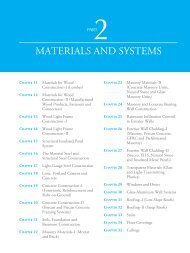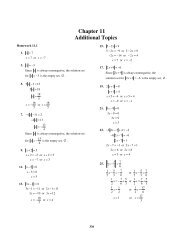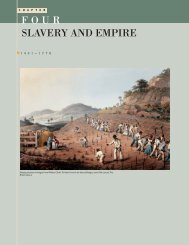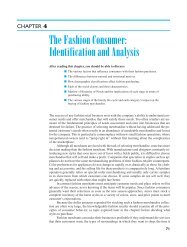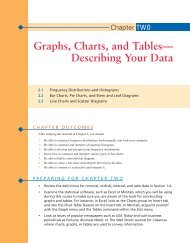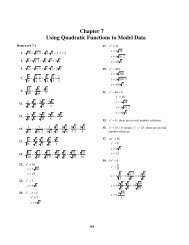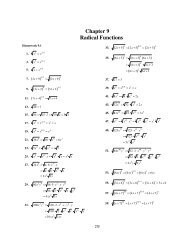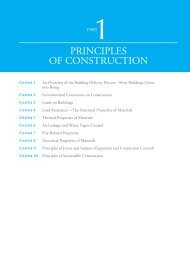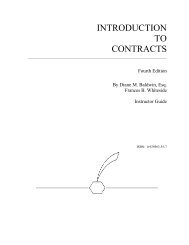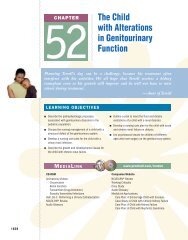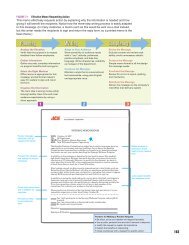audit reports
audit reports
audit reports
You also want an ePaper? Increase the reach of your titles
YUMPU automatically turns print PDFs into web optimized ePapers that Google loves.
follow GAAP, but if the amounts are small, the misstatement is immaterial and a standard<br />
unqualified <strong>audit</strong> report is appropriate.<br />
Amounts Are Material but Do Not Overshadow the Financial Statements as a Whole<br />
The second level of materiality exists when a misstatement in the financial statements<br />
would affect a user’s decision, but the overall statements are still fairly stated and therefore<br />
useful. For example, knowledge of a large misstatement in fixed assets might affect<br />
a user’s willingness to loan money to a company if the assets were the collateral. A misstatement<br />
of inventory does not mean that cash, accounts receivable, and other elements<br />
of the financial statements, or the financial statements as a whole, are materially<br />
incorrect.<br />
To make materiality decisions when a condition requiring a departure from an<br />
unqualified report exists, the <strong>audit</strong>or must evaluate all effects on the financial state -<br />
ments. Assume that the <strong>audit</strong>or is unable to satisfy himself or herself whether inven tory<br />
is fairly stated in deciding on the appropriate type of opinion. Because of the effect of a<br />
misstatement in inventory on other accounts and on totals in the statements, the <strong>audit</strong>or<br />
needs to consider the materiality of the combined effect on inventory, total current<br />
assets, total working capital, total assets, income taxes, income taxes payable, total current<br />
liabilities, cost of goods sold, net income before taxes, and net income after taxes.<br />
When the <strong>audit</strong>or concludes that a misstatement is material but does not over -<br />
shadow the financial statements as a whole, a qualified opinion (using “except for’’) is<br />
appropriate.<br />
Amounts Are So Material or So Pervasive That Overall Fairness of the Statements Is in<br />
Question The highest level of materiality exists when users are likely to make incorrect<br />
decisions if they rely on the overall financial statements. To return to the previous<br />
example, if inventory is the largest balance on the financial statements, a large misstatement<br />
would probably be so material that the <strong>audit</strong>or’s report should indicate the financial<br />
statements taken as a whole cannot be considered fairly stated. When the highest<br />
level of materiality exists, the <strong>audit</strong>or must issue either a disclaimer of opinion or an<br />
adverse opinion, depending on which conditions exist.<br />
When determining whether an exception is highly material, the extent to which the<br />
exception affects different parts of the financial statements must be considered. This is<br />
called pervasiveness. A misclassification between cash and accounts receivable affects<br />
only those two accounts and is therefore not pervasive. On the other hand, failure to<br />
record a material sale is highly pervasive because it affects sales, accounts receivable,<br />
income tax expense, accrued income taxes, and retained earnings, which in turn affect<br />
current assets, total assets, current liabilities, total liabilities, owners’ equity, gross margin,<br />
and operating income.<br />
As misstatements become more pervasive, the likelihood of issuing an adverse<br />
opinion rather than a qualified opinion increases. For example, suppose the <strong>audit</strong>or<br />
decides a misclassification between cash and accounts receivable should result in a<br />
qualified opinion because it is material; the failure to record a sale of the same dollar<br />
amount may result in an adverse opinion because of pervasiveness.<br />
Regardless of the amount involved, a disclaimer of opinion must be issued if the<br />
<strong>audit</strong>or is determined to lack independence under the rules of the Code of Professional<br />
Conduct. This strict requirement reflects the importance of independence to <strong>audit</strong>ors.<br />
Any deviation from the independence rule is therefore considered highly material.<br />
Table 3-1 (p. 58) summarizes the relationship between materiality and the type of<br />
opinion to be issued.<br />
In concept, the effect of materiality on the type of opinion to issue is straight forward.<br />
In application, deciding on actual materiality in a given situation is a difficult judgment.<br />
There are no simple, well-defined guidelines that enable <strong>audit</strong>ors to decide when<br />
something is immaterial, material, or highly material. The evaluation of material ity<br />
Materiality Decisions<br />
CHAPTER 3 / AUDIT REPORTS 57



